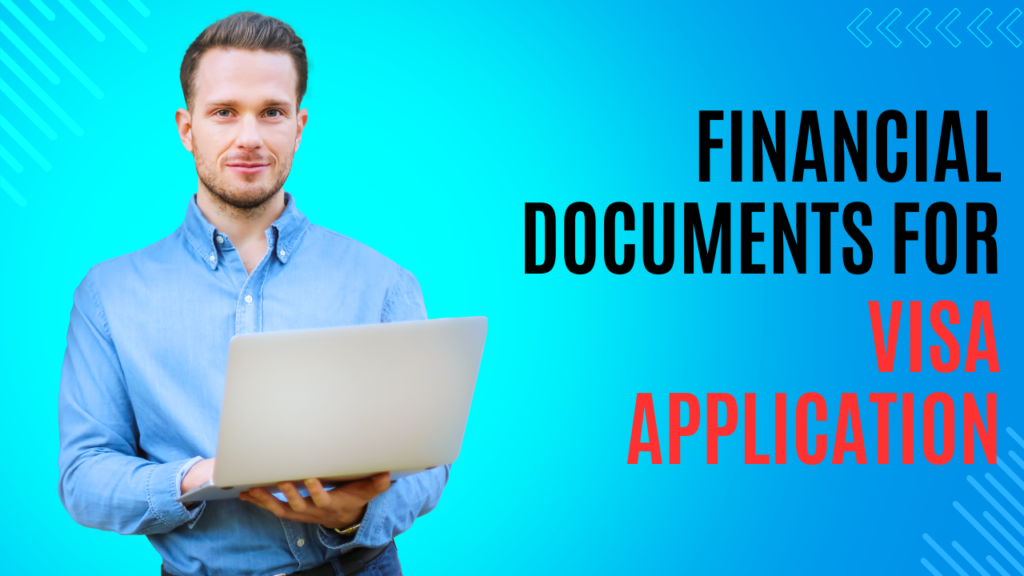
When applying for a visa, one of the most critical components of your application is the financial documentation that demonstrates your ability to support yourself (and any dependents) during your stay in the host country. Financial stability is often a key factor in the visa approval process, and ensuring your financial documents are well-prepared can significantly enhance your chances of a successful application. Here’s a comprehensive guide on how to prepare your financial documents effectively.
1. Understand the Financial Requirements
Before gathering your financial documents, it’s essential to understand the specific financial requirements for the visa you are applying for. Different types of visas may have varying criteria regarding financial stability, so check the official website of the embassy or consulate of the country you wish to visit. Common requirements may include.
1] Proof of sufficient funds for living expenses
2] Evidence of stable income
3] Documentation regarding any financial support from sponsors (if applicable)
2. Gather Necessary Documents
Once you are clear on the financial requirements, it’s time to collect the necessary documents. Here’s a list of common financial documents you may need.
Bank Statements: Give the previous three to six months’ worth of bank statements. Your current account balance and savings should be shown on these statements. Make sure they are certified copies or that they were printed straight from your bank.
Proof of Income: Provide an employment letter outlining your salary or your last three months’ worth of pay stubs from your company. If you are self-employed, submit tax returns or a profit and loss statement from your business.
Tax Returns: Provide your last two years’ tax returns, which can be used as evidence of your income history and financial soundness.
Proof of Assets: Provide proof of ownership and value if you own real estate or other noteworthy assets, such as stocks or bonds.
Affidavit of Support: Have your spouse or parent fill out an affidavit of support outlining their readiness to help you financially if they are providing financial assistance for your visa application.
3. Format Your Documents Professionally
presentation matters when submitting your visa application. Follow these tips to ensure your documents are professionally formatted.
Use Clear Labels: Clearly label each document and provide a brief description of what it is (e.g., “Bank Statement for June 2024”).
Organize Logically: Arrange your documents in a logical order, typically starting with the most relevant documents, such as bank statements, followed by proof of income, tax returns, and any supporting documents.
Make Copies: Always keep copies of the documents you submit for your records. You may need them for future applications or reference.
4. Include a Cover Letter
Consider including a cover letter with your financial documents. This letter should summarize your financial situation and briefly explain how your documents support your ability to cover expenses during your stay. Address it to the visa officer, and clearly state your intentions for traveling to the country.
5. Be Honest and Transparent
It’s crucial to provide honest and transparent information in your financial documents. Any discrepancies or signs of manipulation can lead to visa denial. Be clear about your financial situation, even if it may not be as strong as others. Visa officers appreciate honesty and are trained to assess your financial ability fairly.
6. Seek Professional Assistance
If you find the financial documentation process overwhelming, consider seeking assistance from a professional visa consultant or immigration lawyer. They can guide you through the process and ensure that your financial documents meet the specific requirements of the visa you are applying for.
Final Thoughts
Navigating the visa application process can be daunting, but thorough preparation can make all the difference, particularly when it comes to financial documentation. By presenting clear and compelling financial evidence, you enhance your credibility and increase your chances of obtaining a visa.
Remember, each country has its own specific requirements, so take the time to research and understand what is needed for your application. Be honest and transparent in your documentation, and don’t hesitate to seek help if you find the process challenging.
